Rome Travel Guide: Everything You Need To Know
This travel guide will help you discover everything you need to know to help you plan your visit to Rome.
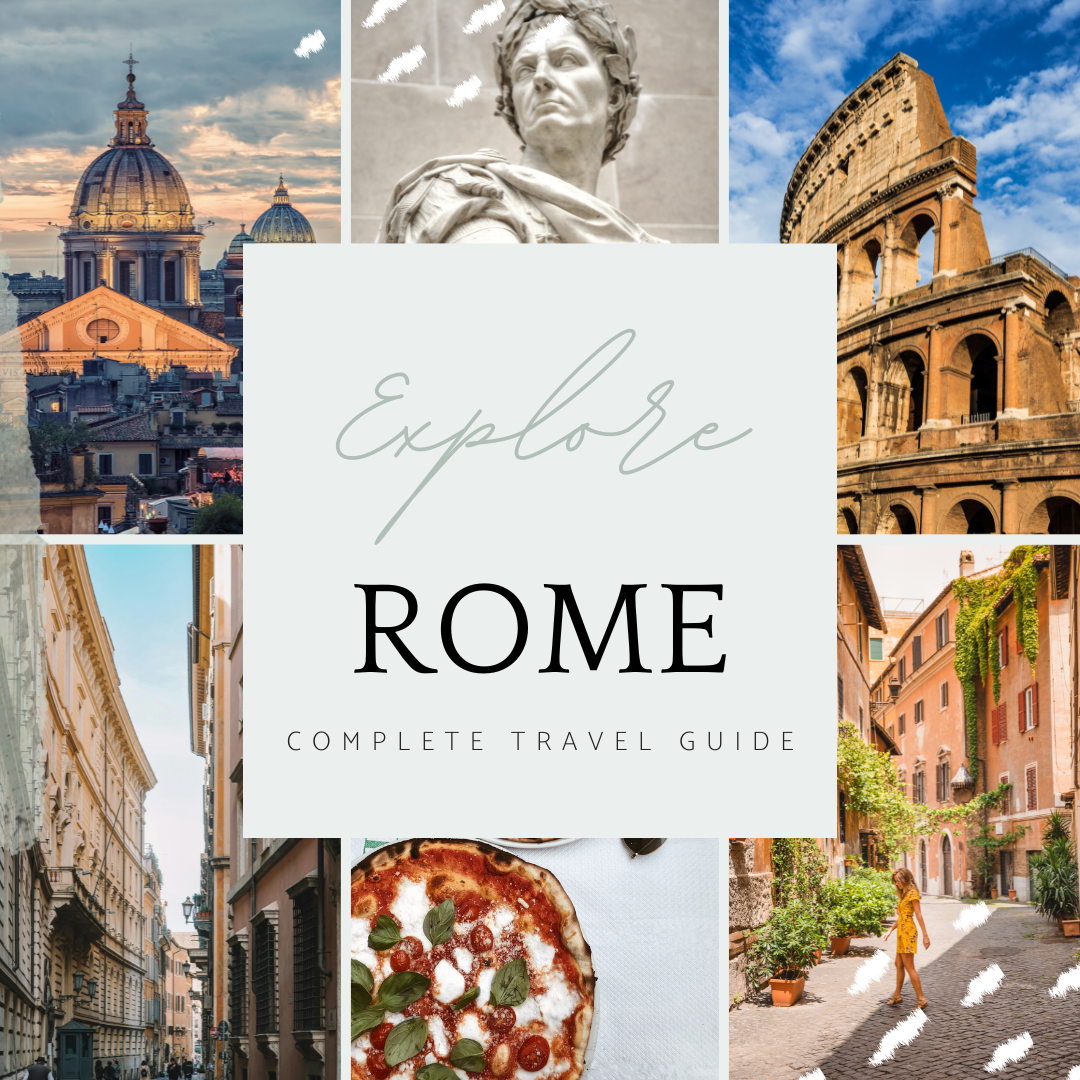
This Rome travel guide covers everything you need to know to make the most of your visit. Discover the top attractions, best neighborhoods, free things to do, best when to visit, daily budget needed, and more!
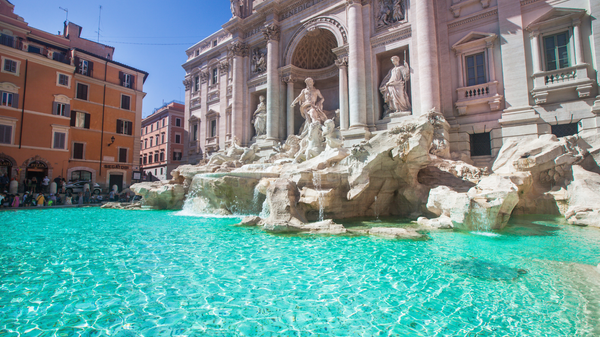
Rome is one of the most fascinating cities in the world—every corner tells a story. From the ruins of the Roman Empire to the masterpieces of the Renaissance and Baroque eras, the Eternal City is full of treasures. Whether you’re wandering its piazzas, sipping espresso in a café, or exploring its ancient monuments, Rome never stops inspiring.
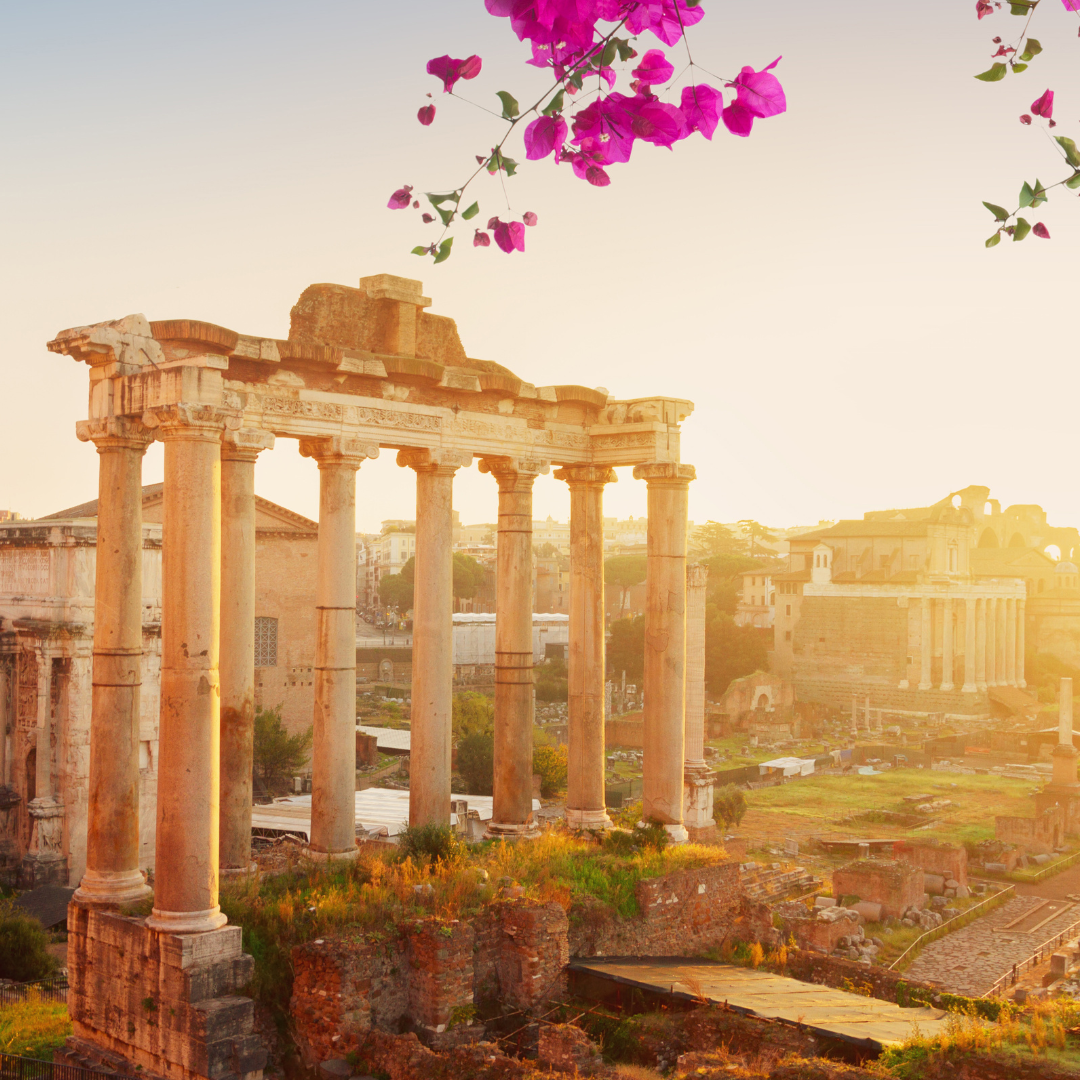
- Peak Season:
April to June, September to October
The best weather and numerous festivals attract the most tourists during these months. Expect higher prices for accommodation and longer lines at major attractions. - Shoulder Season:
March and November
These months offer mild weather and fewer tourists, making it a great time to visit if you want to enjoy Rome without the summer crowds or winter chill. - Off-Season:
December to February
Winter is Rome's off-season, offering quieter streets, lower prices, and a more intimate atmosphere. Despite the colder weather, Christmas and New Year's festivities can make this a magical time to visit.
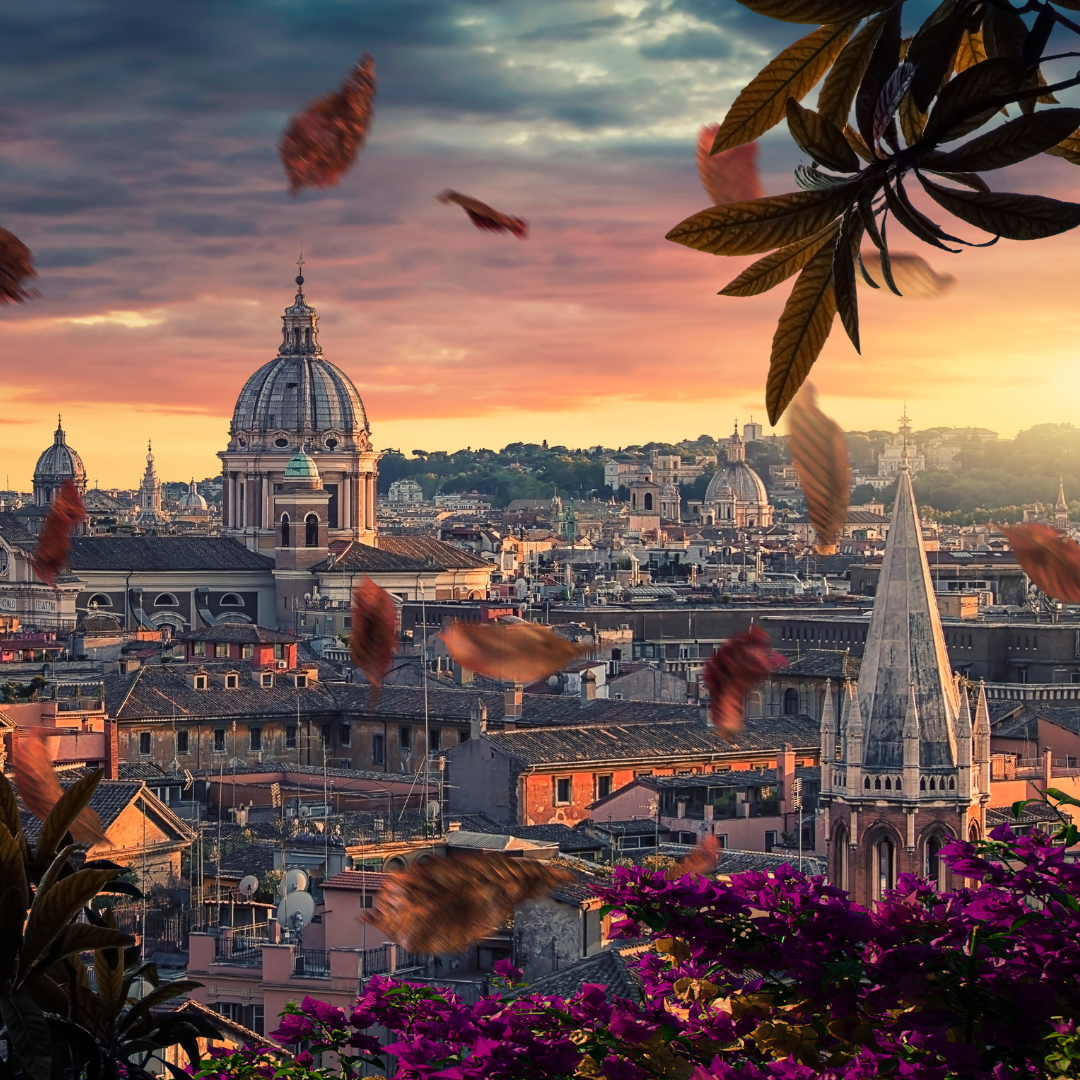
Discover the best things to do in Rome during the off-season—typically between November and March—when the city slows down and feels more relaxed. Hotels are cheaper, crowds are lighter, and you can enjoy Rome’s most famous attractions without the long lines. Here are the top things to do in Rome when visiting during the off-season.
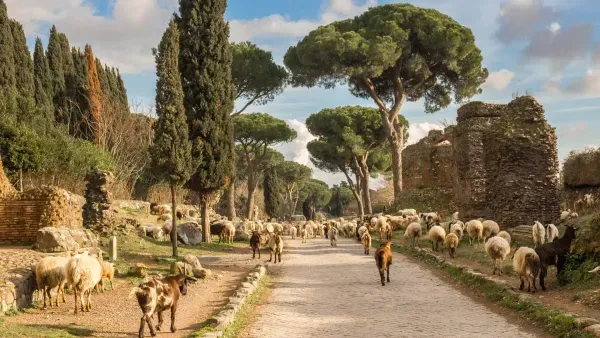
Rome is one of the best cities in the world for free sightseeing. From ancient landmarks to beautiful piazzas and churches, you can spend days exploring without ever pulling out your wallet. Here are some of the top free things to do in Rome:
- Visit The Pantheon
- Visit The Trastevere Neighborhood
- Explore Via Appia Antica
- Visit Trevi Fountain
- Walk Around Via del Corso
- The Spanish Steps
- Visit St. Peter's Basilica
- Visit Basilica di Santa Maria Maggiore
- Visit Campo de' Fiori
- Explore The Basilica of Santa Maria
- Visit Fontana dei Quattro Fiumi
- Visit The Basilica of Saint Paul
- Visit The Basilica of San Giovanni
- Explore Piazza del Popolo
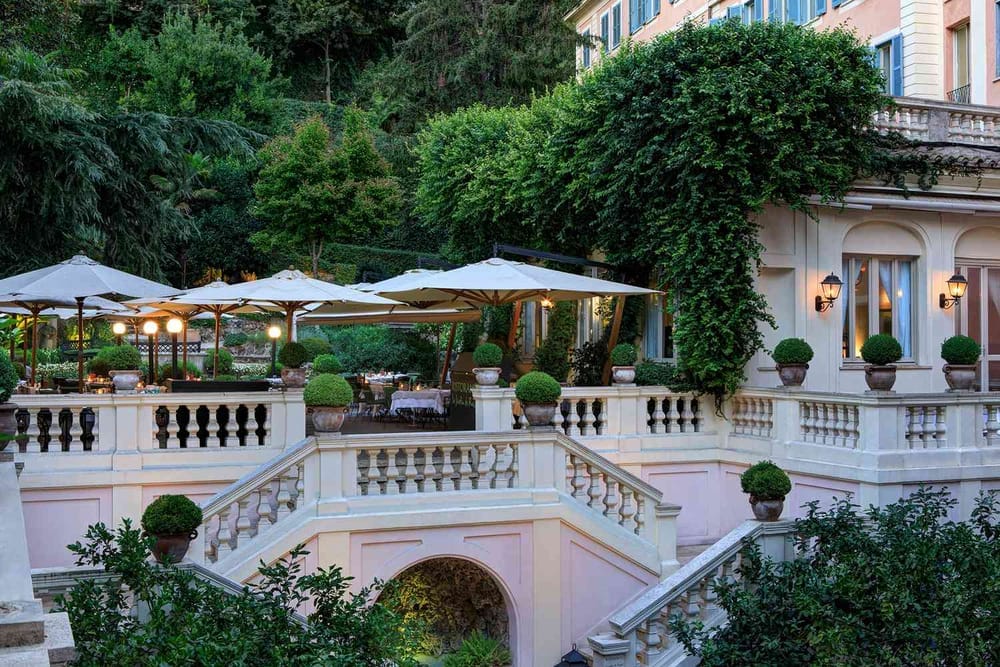
Rome isn’t just about ancient ruins and museums—it’s also a city of style, sophistication, and indulgence. If you’re planning a trip where luxury is the goal, these neighborhoods offer the perfect blend of upscale hotels, fine dining, designer shopping, and elegant streets to wander.
- Centro Storico (Historical Center)
The heart of Rome, filled with boutique hotels, hidden piazzas, and iconic sights like the Pantheon and Piazza Navona just steps away. Staying here means waking up to postcard views and being able to walk to nearly all of Rome’s landmarks. - Spanish Steps & Via Veneto
A glamorous area known for high-end fashion houses, luxury hotels, and romantic views from the top of the Spanish Steps. This is where Rome’s jet set come to shop and sip aperitivo. - Prati
Just across the river from the Vatican, this neighborhood offers a quieter, elegant atmosphere with tree-lined streets, chic cafés, and stylish hotels. Perfect for those who want a refined stay close to St. Peter’s Basilica. - Tridente
A shopper’s paradise where streets converge near Piazza del Popolo. Here you’ll find Rome’s most exclusive boutiques, charming piazzas, and some of the city’s best Michelin-starred restaurants. - Parioli
A leafy, residential district north of the city center known for its upscale villas, embassies, and refined dining scene. Great if you want a more peaceful retreat with a touch of old-world charm.
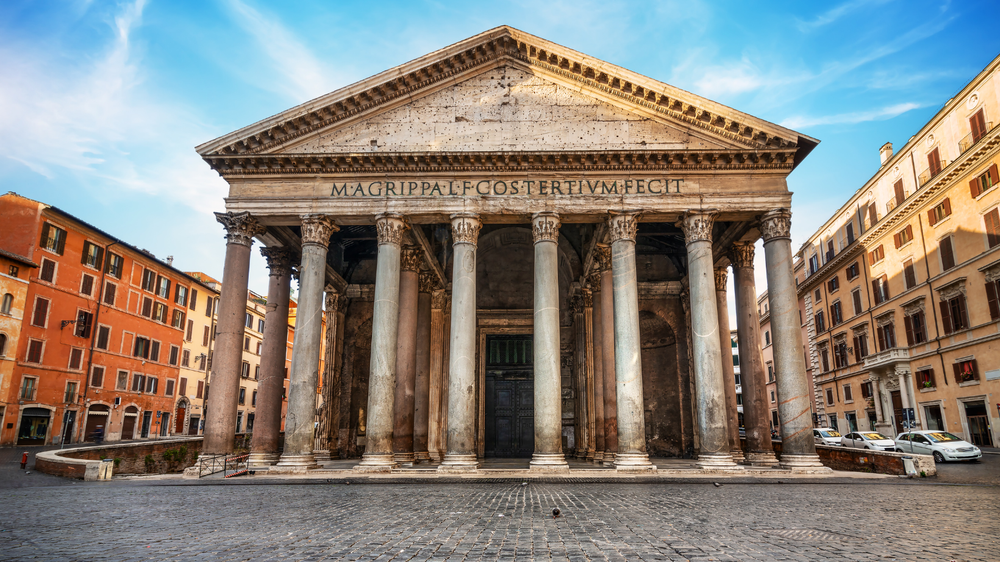
- Centro Storico
The heart of Rome with cobblestone streets, boutique hotels, and easy access to major landmarks like the Pantheon, Piazza Navona, and Trevi Fountain. - Monti
A trendy, bohemian vibe with hip wine bars, vintage shops, and great restaurants. - Trastevere
Colorful streets, lively piazzas, and some of Rome’s best traditional trattorias. - Prati
Elegant, quieter neighborhood with upscale hotels, chic cafés, and wide boulevards. - Pigneto
Known for its artsy, alternative vibe with street art, cool cocktail bars, and a younger crowd. - San Lorenzo
Student-friendly area with casual pizzerias, bars, and nightlife. - Garbatella
Charming residential neighborhood with colorful houses and a true Roman feel. - Borgo
Quiet, historic streets right next to the Vatican — perfect for early morning visits to St. Peter’s Basilica. - Campo Marzio
Stylish shopping streets, high-end boutiques, and gorgeous piazzas. - Testaccio
A foodie’s paradise with Rome’s best market, traditional Roman cuisine, and vibrant nightlife. - Jewish Ghetto
Historic charm, incredible kosher restaurants, and atmospheric piazzas. - Celio
Quiet streets with family-run hotels and trattorias. - Ostiense
Industrial-chic area with craft breweries, street art, and modern eateries. - Flaminio
Artsy district with museums, galleries, and wide open spaces like Piazza del Popolo. - Aventine Hill
Peaceful, elegant area with stunning city views and beautiful gardens.
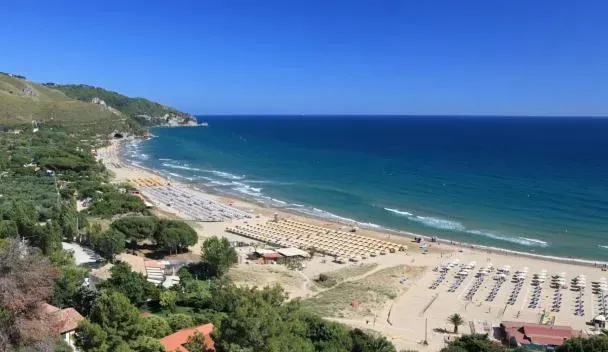
If you need a break from the city, discover the best beaches near Rome—perfect for a relaxing day trip along the coast.
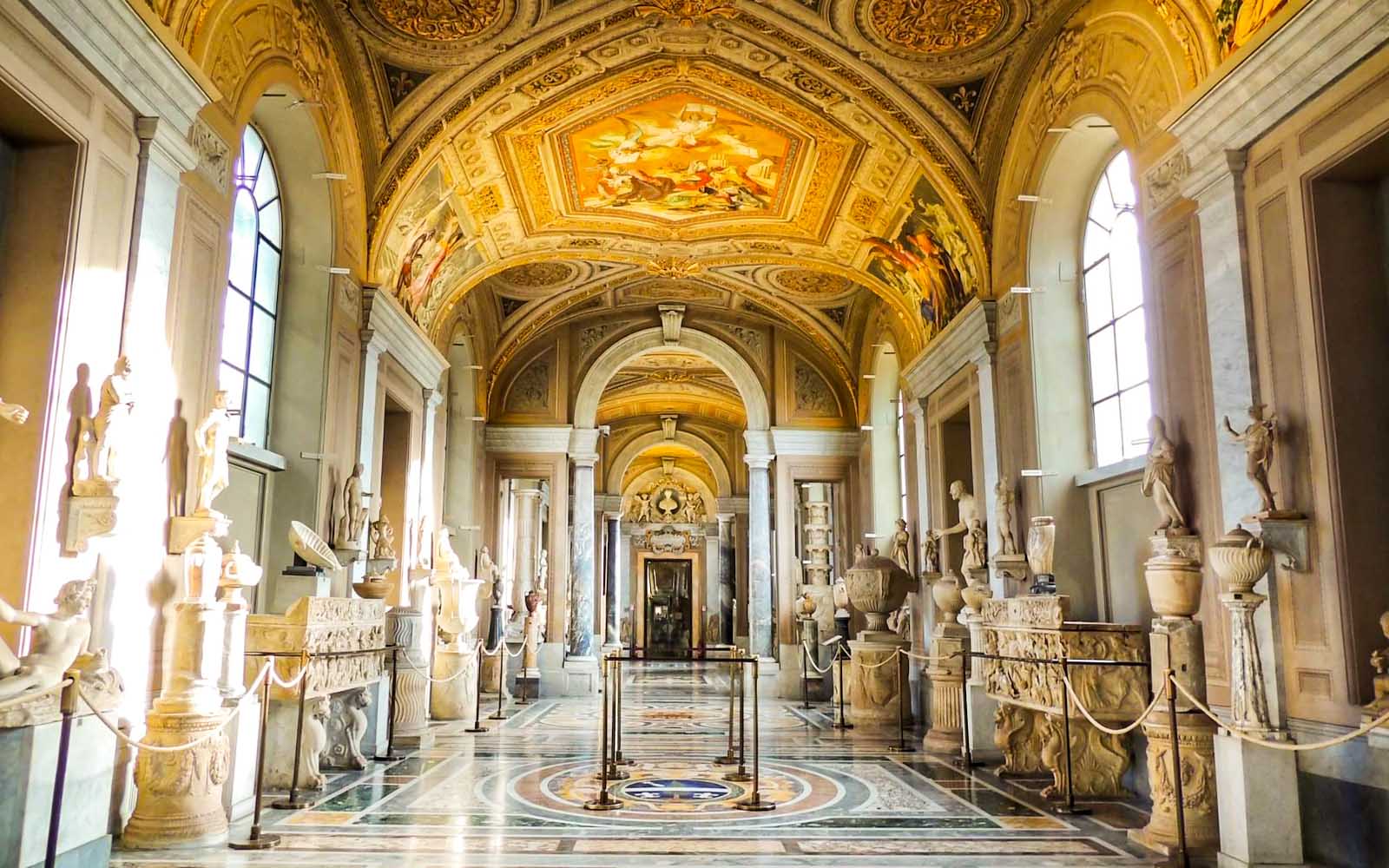
- Vatican Museums
Home to one of the most impressive art collections in the world, the Vatican Museums feature masterpieces by Michelangelo, Raphael, and Leonardo da Vinci. The Sistine Chapel ceiling alone is worth the visit. - Capitoline Museums
Located on Capitoline Hill, this is considered the world’s oldest public museum. Its collection includes the famous bronze Capitoline Wolf statue and masterpieces by Caravaggio and Rubens, all housed in beautifully designed Renaissance palaces. - Galleria Borghese
This gallery is famous for its collection of Bernini sculptures, including Apollo and Daphne and The Rape of Proserpina. It also houses works by Caravaggio, Titian, and Raphael in a gorgeous villa setting. - National Roman Museum (Museo Nazionale Romano)
Spread across four different locations, this museum is the best place to see ancient Roman mosaics, frescoes, and sculptures. - Doria Pamphilj Gallery
This private gallery holds an extraordinary collection of paintings in a stunning 17th-century palace. Don’t miss Velázquez’s portrait of Pope Innocent X, considered one of the most powerful portraits ever painted. - Castel Sant'Angelo Museum
Originally built as Emperor Hadrian’s mausoleum, this fortress turned museum offers both history and sweeping views of Rome. Inside, you’ll find Renaissance frescoes, papal apartments, and collections of weapons and armor. - Palazzo Barberini
This Baroque palace houses part of the National Gallery of Ancient Art, with works by Caravaggio, Raphael, and Holbein. - Villa Farnesina
A Renaissance villa decorated with some of Raphael’s most beautiful frescoes, including The Triumph of Galatea. - MAXXI – National Museum of 21st Century Art
Designed by architect Zaha Hadid, MAXXI is Rome’s premier contemporary art museum.
Rome can fit almost any budget, depending on your travel style.
Budget travelers can expect to spend around €150 ($165) per day, covering simple accommodations, local trattorias, and public transportation.
A mid-range trip runs closer to €300 ($328) per day, including boutique hotels, nice restaurants, and guided tours.
For a luxury experience with 5-star hotels, private drivers, and fine dining, plan for about €489 ($534) per day.
If you’re looking for a complete guide to visiting Italy, this guide covers the country’s top destinations along with some of our favorite itineraries—ranging from quick 8-day trips to in-depth 30-day adventures.
